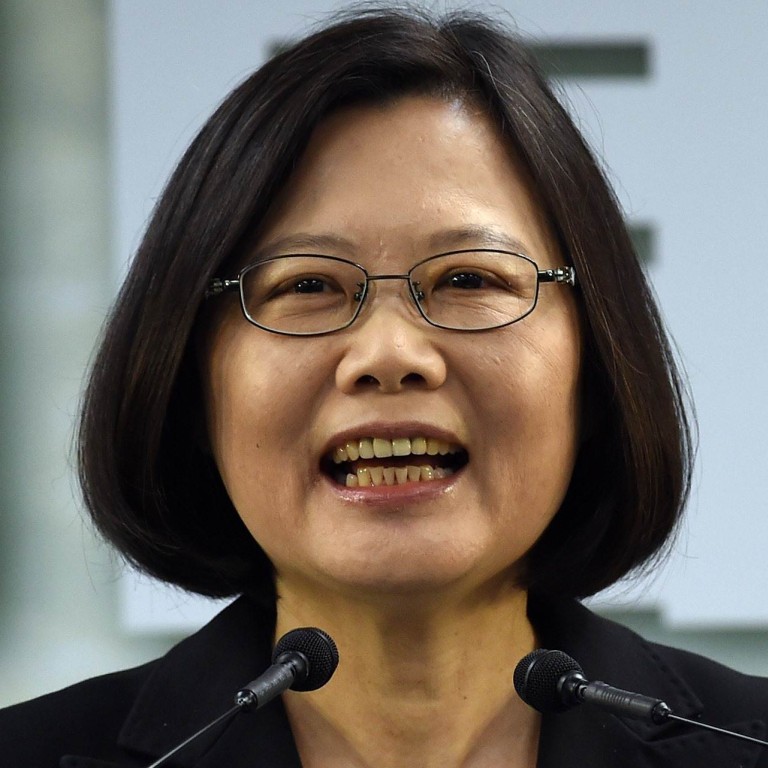
Taiwan presidential hopeful Tsai Ing-wen faces fine balancing act on ties with mainland China
Since 2008 Beijing has been able to focus on consolidating its rise as a global strategic and economic force while forging closer ties with Taiwan and managing a complex relationship with great power rival the US.
Since 2008 Beijing has been able to focus on consolidating its rise as a global strategic and economic force while forging closer ties with Taiwan and managing a complex relationship with great power rival the US. The fact that both Taipei and Washington are perceived, at home and abroad and for different reasons, as not having had strong leaders is seen as having been to China's advantage. That window of opportunity may be about to narrow with the formal declarations by two women that they will run for the office of president of the US and Taiwan.
A Hillary Clinton White House can be expected to project a stronger focus on her country's global leadership role than President Barack Obama, whose term has seen the rise of an increasingly assertive China. He remains perceived as weak despite his talk of the so-called pivot towards Asia. The same can be expected if a Republican takes the White House.
Unlike Clinton, the wife of a two-term president, the younger Tsai Ing-wen of Taiwan's pro-independence Democratic Progressive Party does not have to reinvent herself to make a run for leadership. The presidential election early next year is now hers to lose. Incumbent Ma Ying-jeou of the Kuomintang has also been a pragmatic partner for Beijing, developing economic ties and reducing cross-strait tensions that prevailed for eight years under the DPP's Chen Shui-bian. But the lack of economic development to underpin these political achievements, concerns about the balance of benefits with the mainland and voter fatigue have been Ma's undoing, leaving him with a weak image and dire approval ratings.
Tsai has pledged to uphold the basic principle of maintaining "the status quo" with the mainland, while setting up "normalised" cross-strait relations beyond the existing framework, which focuses on ties between the ruling Kuomintang and the Communist Party.
This reassurance is welcome. But Beijing is still bound to probe for any ambiguities in her position. Certainly, DPP policy towards the mainland will not be as accommodating as the KMT's. Because of the DPP's historical stance on reunification, concerns that if she becomes president ties will again head for choppy waters are understandable. This is not necessarily so, so long as Tsai can maintain the new status quo by articulating a politically credible balancing act that reconciles the DPP's core support base with the moderate centre that is likely to elect it to power.

